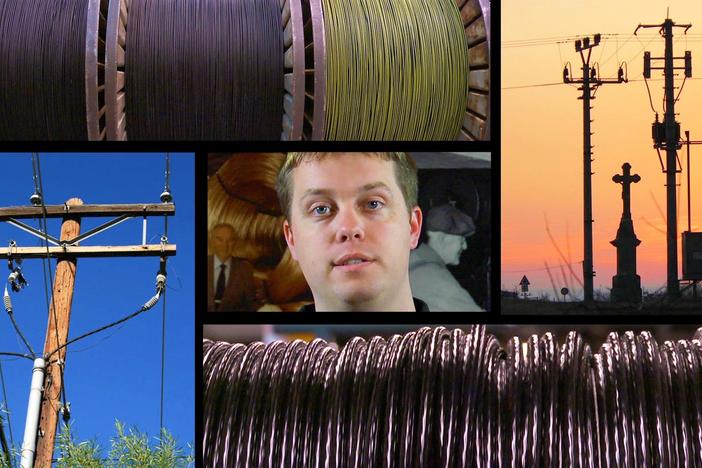White Oak Pastures
Deep in the southwest corner of the state, maybe where you’d least expect it, you’ll find Georgia’s biggest certified organic farm. White Oak Pastures is a fifth-generation family-owned farm established in 1866, but “born on the internet.” In addition to Teachable Moments about sustainable agriculture, monocultural versus polycultural farming, and the Serengeti Plains Rotational Grazing Model, you’ll want to watch the owners, Will and Jenni Harris, test themselves against the Fast Forward Meat-O-Meter!
White Oak Pastures
Deep in the southwest corner of the state, maybe where you’d least expect it, you’ll find Georgia’s biggest certified organic farm. White Oak Pastures is a fifth-generation family-owned farm established in 1866, but “born on the internet.” In addition to Teachable Moments about sustainable agriculture, monocultural versus polycultural farming, and the Serengeti Plains Rotational Grazing Model, you’ll want to watch the owners, Will and Jenni Harris, test themselves against the Fast Forward Meat-O-Meter!
Science
Analyze and interpret data to communicate information on the origin and consumption of renewable forms of energy (wind, solar, geothermal, biofuel, and tidal) and non-renewable energy sources (fossil fuels and nuclear energy).
Construct and revise a claim based on evidence on the effects of human activities on natural resources.
- Human Activities
- Agriculture
- Forestry
- Ranching
- Mining
- Urbanization
- Fishing
- Water use
- Pollution
- Desalination
- Waste water treatment
- Natural Resources
- Land
- Water
- Air
- Organisms
Construct an argument to evaluate how human population growth affects food demand and food supply (GMOs, monocultures, desertification, Green Revolution).
Social Studies
Describe how and why agricultural techniques and technology have changed over time (e.g., irrigation, crop rotation, green revolution, and GMO's).
Analyze the economic, political and environmental impacts associated with industrialization and natural resource management around the world (e.g., fracking, strip mining, building of dams and reservoirs, deforestation, sustainable development, and renewable vs. non renewable resources).
1. How could a farm use social media to grow its business?
2. Why do their farmers believe polycultural farming is better than a monocultural model?
3. Many farms believe that allowing their animals larger areas to graze is better than keeping them in cages. Why do you think they believe that?
Organic: grown or made without the use of artificial chemicals
Sustainable: involving methods that do not completely use up or destroy natural resources
Anaerobe: bacteria that live without oxygen
Photovoltaic: a method for generating electric power by using solar cells to convert energy from the sun into a flow of electrons
Inventory: a complete list of the things that are in a place
Serengeti: region of savannah (woodlands and grasslands) located in Eastern Africa
Ruminants: an animal (such as a cow or sheep) that has more than one stomach and that swallows food and then brings it back up again to continue chewing it
Mono-culture: an agricultural term used to describe the planting of a single species or crop
-
Special Thanks
Jenni, Will, the Harris Family and all of the good folks at White Oak Pastures, The Town of Bluffton
This content was developed under a grant from the U.S. Department of Education. However, this content does not necessarily represent the policy of the U.S. Department of Education, and you should not assume endorsement by the Federal Government.













